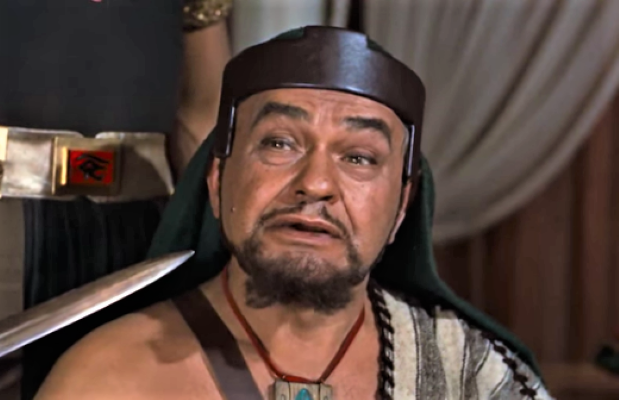The weekly portion features one of the great villains in the Torah, providing a great opportunity to discuss some of the other evil-doers in the Bible.
By Rabbi Ari Enkin, Rabbinic Director, United with Israel
This week’s Torah portion (in Israel) is “Balak” (Numbers 22:2-25:9) and it we read about Bilaam, a non-Jewish prophet, who was granted a level of prophecy on the level of Moses. He was also a magician and sorcerer. Balak, the king of Moav, wanted to hire Bilaam to curse the Jewish people for a ton of money.
God told Bilaam not to go along with the scheme, but Bilaam ignored Him. In the end, Bilaam ended up blessing the Jews against his will instead of cursing them. With two very distinct villains in this week’s Torah portion, it is a great opportunity to discuss some of the villains in the Bible. Let’s examine some of the lesser-known ones, starting with Dathan.
Dathan, a self-hating Jew, is first mentioned in the Torah by name as one who left Egypt along with everyone else. Our sages, however, identify him earlier as the one who may have been responsible for Moses having to run away from Egypt (Exodus 2:13-15). He was the son of Eliab, who was the son of Palu, who was the son of Reuben. His brother, Aviram, was also a troublemaker.
Dathan and Aviram tried to incite the people to rebel against Moses and God many times, including at the Red Sea where they encouraged the people to go back to Egypt. In addition to their general rabble-rousing, Dathan and Aviram where prominent names in the rebellion of Korach (another villain in the bible) against Moses. Their participation in that rebellion was the last straw, as “the earth opened her mouth and swallowed them up and their houses.”
Readers may remember Dathan from the epic film “The Ten Commandments,” where he is played by Edward G. Robinson. In the film he is portrayed as a Jewish overseer of slaves and an informant working for the Egyptians. He is eventually promoted to governor of Goshen with his brother Aviram being second in command. Although not exactly in the text of the Torah, it sure made for a good movie!
Let’s look at Delilah , the primary villain in the story of Samson. Samson, a Nazirite Jewish leader, falls in love with Delilah. Samson has superhero strength, and with it, he defends the Jewish people from the attacks of the Philistines, of which his wife Delilah is a member!
Delilah, who is actually an informant for the Philistines, is charged with finding out the secret of Samson’s strength. After trying to get the secret out of Samson three times, with Samson giving bogus explanations each time, he finally cracks under the pressure and tells her that his strength lays in his hair. If his hair were cut, he would lose all his strength. So when Samson went to sleep that night, Delilah cut his hair off. She then notified the Philistine soldiers that they should be able to overtake him now. And so it was.
There is much discussion as to exactly what the relationship between Samson and Delilah was. The Bible does not exactly confirm that they were married. Some of theories that exist include that they were married (and some add that she “converted” to Judaism), that Delilah was a concubine, or prostitute. According to some accounts they had children together.
Goliath, another Philistine villain, appears in the book of Samuel. He was a Philistine warrior, a giant who was defeated by the still unknown David. The story goes something like this: King Saul and the Israelites gathered opposite the Philistines in the Ella Valley (not far from the United with Israel offices here in Beit Shemesh!). Twice a day for 40 days, Goliath approached the Jewish camp challenging the Jewish people to send out a warrior to battle him one-on-one instead of a traditional army-vs-army fight. Everyone is afraid to take on the giant except for a boy named David.
Armed with only a slingshot and five stones David steps up to the center of the battlefield to confront Goliath. Goliath is fully armed and protected with the best military equipment known to man at the time. David shoots a stone at Goliath and hits him in the center of his forehead, the only place on his body where armor did not cover. Goliath falls dead to the ground and David cuts off his head. The Philistines retreat in defeat and embarrassment and peace returned for some time. According to the Talmud Goliath was the son of Orpah, the sister-in-law of Ruth, David’s own great grandmother!
For more insights by Rabbi Enkin on this week’s Torah portion, click on the links below.
https://unitedwithisrael.org/living-torah-to-judge-leaders-look-at-their-followers/
https://unitedwithisrael.org/living-torah-the-patriarch-abraham-vs-the-prophet-bilaam/
https://unitedwithisrael.org/living-torah-god-helps-those-who-help-others/
https://unitedwithisrael.org/living-torah-nothing-is-impossible-when-it-is-gods-will/
